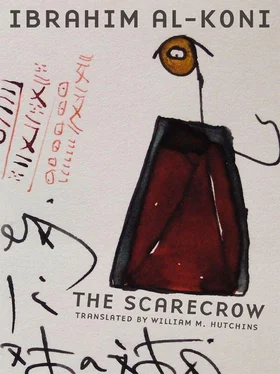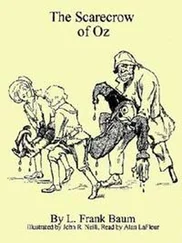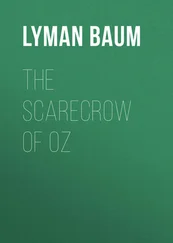23. The Seven Veils of Seth , 129 ff.
24. Lawn al-La‘na , 15.
25. Te Velde, 13–26.
26. E. A. Wallis Budge, The Gods of the Egyptians (1904; New York: Dover Publications, 1969), 2:367.
27. Te Velde, 106.
28. Ibid., 54.
29. Ibid., 29.
30. Ibid., 55.
31. Ibid., 140.
32. Ibid., 141.
33. Ibid., 148.
34. Ibid., 147.
35. Edward O. Wilson, Consilience: The Unity of Knowledge (1998; New York: Vintage Books, 1999), 280–281.
36. Ibid., 244.
37. C. G. Jung, The Archetypes and the Collective Unconscious , vol. 9, 2nd ed., trans. R. F. C. Hull (Princeton: Princeton University Press, 1968), part 1, 4–5.
38. Ibid., 256.
39. Robert D. Pelton, The Trickster in West Africa (Berkeley: University of California Press, 1980), 252.
40. Ibid.
41. Roger D. Abrahams, African Folktales (New York: Pantheon Books, 1983), 155.
42. Ibid., 156.
43. Noel Q. King, African Cosmos: An Introduction to Religion in Africa (Belmont, CA: Wadsworth Publishing Co., 1986), 10–11.
44. Pelton, 142.
45. Sabry Hafez, “The Novel of the Desert: Poetics of Space and Dialectics of Freedom,” in La Poétique de l’espace , 67.
46. Ibid., 66.
47. Ibid., 76.
48. Ibid., 80
49. Ibid., 161.
50. Ibid., 162.
51. Manning Marable, Malcolm X: A Life of Reinvention (New York: Viking, 2011), 11.
52. Ziad Elmarsafy, Sufism in the Contemporary Arabic Novel (Edinburgh: Edinburgh University Press, 2012), 107.
53. Ibid., 108.
54. Ibid., 110.
55. Ibid., 129.
56. Ibid., 112.
57. Farid ud-Din Attar, The Conference of the Birds , trans. Afkham Darbandi & Dick Davis, rev. ed. (London: Penguin Books, 2011), 182. See also Faridu’d-Din Attar, The Speech of the Birds , trans. P. W. Avery (Cambridge, UK: The Islamic Texts Society, 1998), 293 for a less memorable but more complete translation of the same passage.
58. Elmarsafy, 130–138.
59. Attar, xvii — xviii.
60. Al-Koni, “Témoinage,” 101.
61. Marc Slonim, introduction to The Brothers Karamazov, by Fyodor Dostoyevsky (New York: The Modern Library, 1950), ix.
62. Ibrahim al-Koni, al-Majus , 4th printing (Beirut: al-Multaka Publishing, 2001), 47.
We are the hollow men
We are the stuffed men
Leaning together
Headpiece filled with straw. Alas!
T. S. Eliot, “The Hollow Men”
Some weave huge figures of wicker,
and fill their limbs with live humans,
who are then burned to death when the figures are set afire.
Julius Caesar, The Gallic War Book VI.16
With an ill omen you take home a woman
whom Greece will come to claim with a great army….
Horace, Odes I: Carpe Diem Song 15
1
“Taking the matter seriously is actually a grave threat.”
The hero repeated this phrase twice and pulled from his pocket a scrap of blue cloth that he wound carefully around his right index finger. Then he began to wipe his eyelids very cautiously.
Across the room from him, the chief merchant said, “The threat does not lie in taking it seriously. The danger comes from another site that is closer to us than our jugular veins.”
The council members gazed at him with interest, but he did not turn to face his peers. Instead he traced a symbol on the ground with his finger and then concluded cryptically, “The threat lies in the title!”
More than one voice asked, “The title?”
“In the awe-inspiring title of leader.”
They exchanged covert glances, and the hero interjected, “You’re right! The tribes have learned from long experience that a man remains a man like any other until the Spirit World tests him with leadership. Afterward he is changed and transformed much as nursing infants are when their mothers neglect them and leave them in areas that aren’t safeguarded by knife blades. I think our late comrade is a prime example of what I’m talking about.”
They retreated into silence again. They traveled far away, wandering in other realms. They circled the deserts and descended into the caverns. The cavern into which suspicious people descend during hours of despondency, however, is not merely enveloped in gloom — it is also bottomless, because it is a cavern that is not temporally perceived or located in space.
Even so, the peers heard a voice issue from Imaswan Wandarran’s cavern: “What is the secret reason for the change, I wonder? Shouldn’t we consider this a symptom of a major defect?”
From the cavern symbolized by the cryptic mark he had traced in the dirt with his finger, the man with two veils spoke again. “We wrong the man on whom we bestow the title of leader if we think he possesses a choice in the matter. We forget that the leader is a miserable creature because he isn’t his own master.”
He fell silent. Ah’llum urged him to clarify his statement: “Take one more step, because we haven’t understood.”
“‘ Areyakhrakan yaqled Anhi . He who has lost his way should consult Anhi.’ This is what the Lost Book teaches us in its laws. We forget that leadership is a form of sovereignty, and that sovereignty is as haunted a place as the site of a treasure.”
Imaswan Wandarran cried out, “Did you call sovereignty a haunted site?”
“If the Spirit World’s tribes seized control of gold in the first age, and forbade its use by anyone else in the ancient covenant our forefathers discussed in our lost Law, the jinn had already seized control of leadership long before that. They singled out sovereignty as their homeland before they ever seized control of gold dust.”
“Reports of an irrevocable gold-dust covenant between our forefathers and the people of the Spirit Word have reached us, but we have never previously heard of a group seizing control of sovereignty.”
More than one voice moaned appreciatively in support of their comrade’s clarification. So the chief merchant continued his struggle to reveal the secret of leadership with the keys provided by talismans he had drawn in the dirt.
“It is right for a merchant to discuss haunted homelands, because merchants are the only community that uses a haunted currency for their transactions. Yes, yes: treasures are our currency, and leadership is not merely the mainstay of treasure, which is what the masses imagine, but actually the secret of the treasure, the mate of the treasure, and the head of the treasure.”
He buried legions of talismans beneath a pile of dirt and plucked from the earth a handful of pebbles of different colors. He heaped these in his palm and gazed at them absentmindedly.
From an unidentified cavern a voice called out, “In the time when rocks were moist and the earth was inhabited only by the people of the Spirit World, Grandfather Mandam descended to it after he was exiled from his unidentified homeland. Dressed in the rags of desert nomads, the jinn went out to meet him. They had decided to offer a little secret to this migrant, who was exhausted by the curse of interminable travel. They told their guest that they were the desert’s masters and that if he wished to enjoy living in their kingdom, he merely had to obey their Law and accept a covenant whereby the son of the desert lands would become lord of these lands but leave the affairs of the spiritual worlds to the inhabitants of those worlds. Then curiosity gnawed on the human being’s heart. So he asked these people what the spiritual worlds hid. Their leader’s cryptic reply has been passed down through the generations. It is said that the jinn’s leader declared to our ancient ancestor on that day, ‘Our distinguished guest errs if he asks this, but we should excuse him, since we understand that his curiosity was the sole reason for his banishment. So know, then, that should you learn this, your knowledge would not increase but decrease and what you learn would harm you. The spiritual worlds we inhabit are the abode of the wilderness that the desert and the desert people, who will descend from your loins, occupy. The spiritual worlds are not merely a home for the empty land; they stand supreme over its head. So you must entrust your affairs to the spiritual worlds forever and never raise your head — if you want to enjoy your stay in your new homeland. If you are arrogant and wish to impose yourself as sovereign over the sovereignty of the spiritual worlds, evil will track you down, and you will suffer. So beware!’ The immigrant, who was footloose by nature, did not merely dare to raise his head and walk proudly in the desert, thinking he would reach as high as the mountains, but began to strive to devise a path for himself to the heavens. He whispered, hinted, and searched for a secret that could convey him to the spiritual worlds so he could seize control of them, because he realized that human beings would never be able to possess the wilderness if they didn’t find a way to seize control of the spiritual worlds. The people of the Spirit World thought they would punish this upstart for his violation of the covenant. So they allowed him to fall asleep. Then they excised his heart, which they replaced with a different one. They removed his brain and substituted another one. They amputated his hand and grafted another in its place. When the upstart woke, he found that the compassion in his heart had fled and been replaced by cruelty, that wisdom had quit his head and left in its stead stupidity and delusion, and that his right hand — which had been loath to reach up to chase a fly from his face — now rushed to slay everything in the desert. His tongue declared blasphemously that day: ‘I am sovereign over the earth. I am lord of all creatures. Haven’t the people of the Spirit World left me in the desert as their lieutenant? Didn’t the lords of the spiritual worlds install me as lord over the wilderness?’ On that ill-omened day, the upstart did not merely lift his head to boast before the heavens but also used his hand to slay. He killed — for the first time in the history of the desert. Since that day, killing has become one of the laws that rulers follow. Since that day, replacing leaders has become a favorite pastime for inhabitants of the Spirit World.”
Читать дальше












